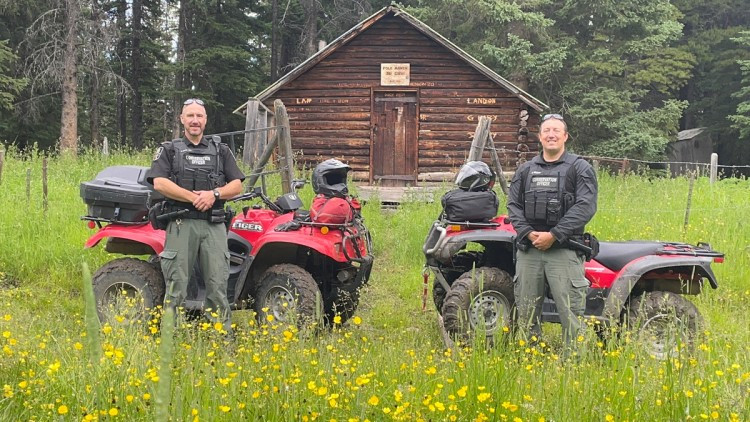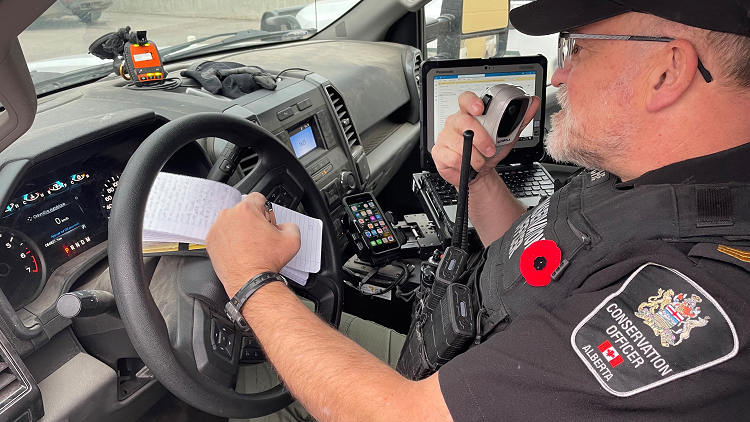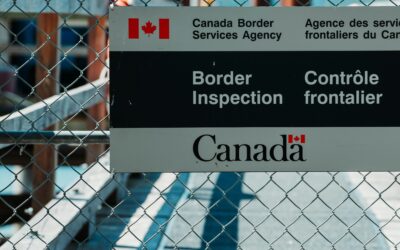A career as a Conservation Officer in Alberta is an exciting and rewarding path for those passionate about protecting natural resources and enforcing environmental laws. Conservation Officers (COs) play a critical role in safeguarding Alberta’s parks, wildlife, and public safety. If you’re considering this career, it’s essential to understand the qualifications, training, and daily responsibilities involved. Plus, discover how Blue Line Fitness Testing can help you prepare for the physical demands of the role.

The Role of a Conservation Officer:
Conservation Officers in Alberta are law enforcement professionals responsible for ensuring compliance with provincial and federal environmental laws. Their duties include:
Emergency Response and Search & Rescue – Assisting in search and rescue operations and responding to environmental emergencies.As stewards of Alberta’s natural resources, conservation officers play a crucial role in safeguarding the environment and enforcing wildlife and environmental legislation. They monitor compliance with hunting and fishing regulations, patrol protected areas, and promote public awareness about conservation. Whether it’s preventing poaching, mitigating human-wildlife conflicts, or conducting investigations, these officers are at the forefront of preserving Alberta’s biodiversity and providing law enforcement in our rural areas and remote locations.
Wildlife and Fisheries Enforcement – Monitoring hunting, fishing, and trapping activities to ensure compliance with regulations.
Patrolling Parks and Public Lands – Preventing illegal activities such as poaching, unauthorized vehicle use, and habitat destruction.
Public Education and Outreach – Educating the public about conservation laws, outdoor safety, and responsible recreation.
Investigations and Law Enforcement – Conducting investigations, issuing fines, and sometimes making arrests when laws are violated.
Conservation officers frequently patrol their areas by truck, foot, boat, off-highway vehicle (OHV) and sometimes by plane, snowmobile, skis, or horseback. They watch for potential hazards and assess the condition of the park, its wildlife, and its other natural resources.
Conservation officers are trained in first aid and lifesaving techniques and must take charge when visitors are lost, injured, or in danger. They work in cooperation with other first responders and law enforcement agencies to assist visitors in need.
Check out this video about being a Conservation Officer!
Requirements for becoming a conservation officer:
To become a Conservation Officer in Alberta, candidates must meet specific educational and physical requirements.
Education & Experience:
- A two-year diploma or four-year degree in Environmental Science, Natural Resource Law Enforcement, Conservation Law, or a related field.
- Relevant experience in law enforcement, resource management, or the environmental sector is an asset.
- A valid Class 5 operator’s license.
- Ability to pass a background check and security screening.
- Computer skills are a definite asset.
- Applicants must be eligible for a Peace Officer appointment.
- Conservation officers are expected to maintain current CPR and standard first- aid training
Conservation officers are employed by the Government of Alberta. They may be posted or transferred to districts across Alberta. Most officers are transferred at least once during their first few years of employment.
Physical Fitness & Testing:
- Conservation Officers must pass a rigorous physical fitness test, the PARE test.
- Candidates must demonstrate strength, endurance, agility, and cardiovascular fitness to handle the physical demands of the job.
Additional Requirements:
Vision and Auditory assessment,
Psychological assessment,
Strong communication skills and the ability to handle stressful situations and a criminal records check with vulnerable sector screening.
Application Requirements
As part of the application process, you are required to include the following:
Cover Letter and Resume – please include specific dates (including months and years) associated with all education and work experience. Please indicate whether your work experience is casual, part-time, or full-time .
Documentation That Will Be Required For The Interview Stage
If you are selected to move forward to the interview stage, you will receive an email requesting the following documents:
Current Driver’s Abstract (minimum 3-year abstract) – issued within the last 6 months
Defensive Driving Certificate (issued within the last 3 years)
Copy of valid Standard First Aid and CPR Level-C certifications or higher
Work History – last 10 years
3 references, at least one must be a supervisor from your most recent employer
Candidates must successfully complete all of the above-mentioned requirements prior to being offered a position.
For out-of-province applicants, the documents requested above can be obtained from the province you reside in.
The Conservation Officer Training Program:
Becoming a conservation officer in Alberta requires a comprehensive five month training program that equips individuals with the knowledge and skills needed for the job, followed by an 8 month in-district Field Training Program. Candidates must be eligible for and receive an Alberta Peace Officer and Conservation Officer appointment. Trainees undergo rigorous physical fitness training, law enforcement instruction, wildlife management education, swift water rescue, off road vehicle operations and firearms training, just to name a few modules. Some additional modules include:
Authorities and legislation
Government of Alberta e-Learning
Firearms: pistol and long arms
Emergency Vehicle Operator Course
Wildlife Human Attack Response Training
Chemical Immobilization
ICS 100, 200
Control Tactics
Search and Rescue
Investigator Training
Alberta Parks Boat Operator and Water Safety Course
This ensures that conservation officers are well-prepared to handle the diverse challenges they may encounter in the field, as oftentimes, they are alone while on duty.

Rewards and Job Satisfaction:
While the role of a conservation officer is challenging, it is also incredibly rewarding. The opportunity to make a positive difference in preserving Alberta’s natural heritage, protecting endangered species, and ensuring sustainable ecosystems brings immense job satisfaction. Witnessing the success stories of species recovery or experiencing the gratitude of a community deeply connected to nature are just a few of the moments that make this profession truly fulfilling.
On average, a conservation officer can make a strong wage as well varying from approximately $35/hour to $50/hour.
Conservation Challenges in Alberta:
Alberta boasts an array of ecosystems, including mountains, boreal forests, grasslands, and wetlands, each facing unique conservation challenges. Conservation officers tackle issues such as habitat loss, invasive species, and the impact of climate change on wildlife, as well as poaching, illegal fishing and hunting practices and destructive behaviour. Balancing the needs of human development and preserving natural habitats requires innovative strategies and adaptive management techniques.
Collaborative Efforts and Partnerships:
Conservation officers in Alberta often work closely with various stakeholders, including government agencies, indigenous communities, landowners, and non-profit organizations. Collaborative efforts are vital for effective wildlife management, habitat restoration, and education initiatives. By fostering partnerships, conservation officers strengthen conservation efforts and create a lasting impact on Alberta’s ecosystems.
Interactions with the Community:
Community engagement is an essential aspect of a conservation officer’s role. Officers organize public outreach programs, school visits, and workshops to educate individuals about wildlife conservation and responsible outdoor recreation. By promoting a sense of stewardship and respect for nature, conservation officers inspire a generation of environmentally conscious citizens.
How Blue Line Fitness Testing Can Help
At Blue Line Fitness Testing, we specialize in helping candidates prepare for law enforcement fitness tests, including those required for Conservation Officers. Here’s how we can support your journey:
- PARE Test Preparation: Our training programs and practice tests help you build the strength and endurance needed to pass Alberta’s PARE test and other fitness assessments.
- Functional Fitness Training: We provide specialized training to improve agility, stamina, and strength for fieldwork.
- One-on-One Coaching and Interview Preparation: Get personalized support and specific feedback and practice for your interview to maximize performance.
- First Aid and Firearms Certifications: Intermediate (Standard) First Aid and CPR level C certification is a necessity and your Canadian Firearms Safety Course is a definite asset for your application. We provide certification courses every month!
Start Your Conservation Officer Journey Today!
Becoming a Conservation Officer in Alberta requires dedication, education, and physical preparedness. By training with Blue Line Fitness Testing, you can ensure you’re physically and mentally ready for the challenges ahead. If you’re serious about pursuing this career, contact us today to start your fitness training and prepare for success!
For more information about Conservation Officers in Alberta, visit Alberta’s official website.
For more information on PARE prep and testing or any of the other law enforcement testing Blue Line offers, check out these pages and posts:
Becoming a Fish & Wildlife Officer in Alberta
Everything you Need to know about being a Sheriff in Alberta
Sirens, Slammers and Service – A podcast for first responders







